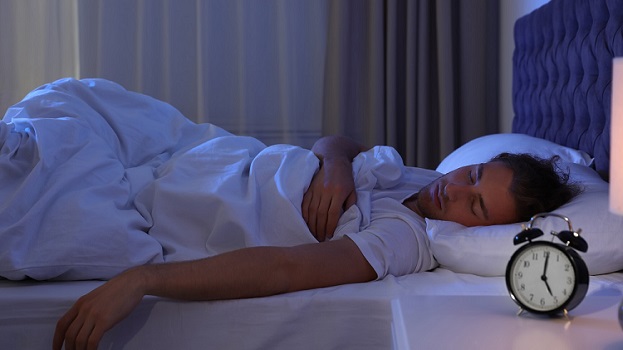Tired of being tired? Sleep better and improve your sleep quality with these simple tips to getting more shut-eye.
Try these tips:
- Make your bedroom as dark as possible for sleeping – blackout blinds or an eye mask might help.
- Noises disturb sleep – double-glazed windows and wearing earplugs could help you get peace and quiet.
- Experts suggest having a warm or cool room – not hot, hot, hot – ideally 18-24oC.
- If you can, keep sleeping hours regular, programming your body clock into a routine.
- A good mattress may cost a lot but can improve sleep quality and reduce stress and back pain.
- Avoid smartphones, tablets or other blue-light electronic devices for an hour or longer before going to bed.
- Avoid drinking alcohol or caffeine before bed – it’ll make your sleep worse.
- Briefly write down thoughts or to-do lists for the next day, then forget about them, to clear your mind before bed.
The amount of sleep we need varies, but experts suggest seven to nine hours each night. Studies show people have signs of impairment just by going one night with only five to six hours.
Are you a shift worker? You might benefit from strategic naps – try to schedule protected time for them. To coincide with natural dips, they are best between 01:00 and 06:00 and 14:00 to 16:00. HSE has additional guidance.
Did you know? Losing an hour of sleep every night for a week is like losing a whole night!

3 things affecting how tired we feel
- How much sleep we’ve had
- How long we’ve been awake
- Our body clock
Unwind before bed – try these!
- Take a warm (not hot) bath.
- Do light, relaxing exercise like yoga stretches.
- Listen to relaxing music or sounds.
- Read a book or listen to the radio – whatever works best for you.

For information about sleep, see thesleepcharity.org.uk or call the National Sleep Helpline on 03303 530 541.
Find out more
Quiz: could you sleep better to help fight fatigue?
Fatigue risk on the railway: recognising the signs, why it matters and what you can do
Six lifestyle tips to reduce fatigue
Sleep and shift working: new study findings
Alstom: fatigue management and sleep quality
Rep learning webinar: preparing for the new Network Rail fatigue standard
Tags
- Health and Wellbeing
- Fatigue
